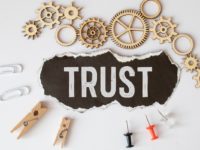It’s a fact. Communities now expect more from businesses than just profits. The concept of a “social licence to operate” (SLO) has become crucial – companies need to curate their reputation and contribute positively to society and the communities where they operate.
Before I go any further, I want to introduce a different term for SLO – Social Value (SV). Mining giant BHP created this term, and I’m a convert.
Unlike “licence,” which implies permission to do something that might have negative consequences (think Driving Licence), “Social Value” carries a positive tone of contribution and benefit. So, let’s continue, using “Social Value”.
For small businesses, this concept isn’t just a buzzword—it’s our daily reality. We’re deeply embedded in our communities, and we understand how vital reputation and relationships are. Yet, many large companies don’t fully appreciate the role we play in helping them secure and maintain their own Social Value.
Here’s what small-business owners want big companies to understand about Social Value.
Social value is more than corporate philanthropy
SMEs, Social Value is the core of everything we do. We live and work within our communities, and our success depends on acting ethically and contributing positively. Our customers expect us to be more than a business but also a positive force.
When big companies enter a community, they can bring both benefits and challenges. Too often though, they focus on their bottomline without fully grasping how much community trust and goodwill influence their long-term success. It’s more than just donating to local causes or supporting the local footy team. Real Social Value comes from genuine engagement and meaningful partnerships—particularly with local small businesses.
How big companies can strengthen their social value
1. Invest in the local economy by supporting us
Supporting the local economy starts with supporting local businesses. When large companies choose local suppliers, contractors, and service providers, they’re not just meeting procurement needs—they’re investing in the community.
Each time a big company buys locally, it helps sustain jobs, encourages local entrepreneurship, and keeps money circulating within the community. This benefits both small businesses and the larger corporation by fostering goodwill and trust, which are key to maintaining their Social Value.
2. Leverage local knowledge
We are deeply connected to our community. We interact daily with local people, understand their needs, and know the pulse of the area. Big companies can leverage this local knowledge by partnering with us instead of imposing their own agenda without fully understanding community dynamics.
When big companies involve local businesses in decision-making—whether it’s about sourcing, community projects, or local engagement strategies—they gain valuable insights that help them build stronger community ties and Social Value.
3. Promote sustainability and ethical practices together
Sustainability and ethical practices are foundational for small businesses. Our customers care about where products come from, and how they are made. By partnering with local businesses that prioritize these values, big companies can enhance their own Social Value.
Whether sourcing materials from local, sustainable suppliers or collaborating on environmental initiatives, these partnerships show that a company cares about more than just profit. They demonstrate a commitment to the well-being of both the community and the planet.
What big companies need to understand
For small businesses, securing Social Value isn’t about corporate strategy—it’s about what happens in the community, every single day. Big companies need to realise that partnering with local businesses is not just ticking a box. It’s about building trust, fostering long-term relationships, and securing their future success.
We are not just vendors—we’re partners in the community. When large companies support small businesses, they help us grow and, in turn, strengthen their own reputation. If we work together, we can create a resilient, sustainable, and prosperous future for everyone involved.















